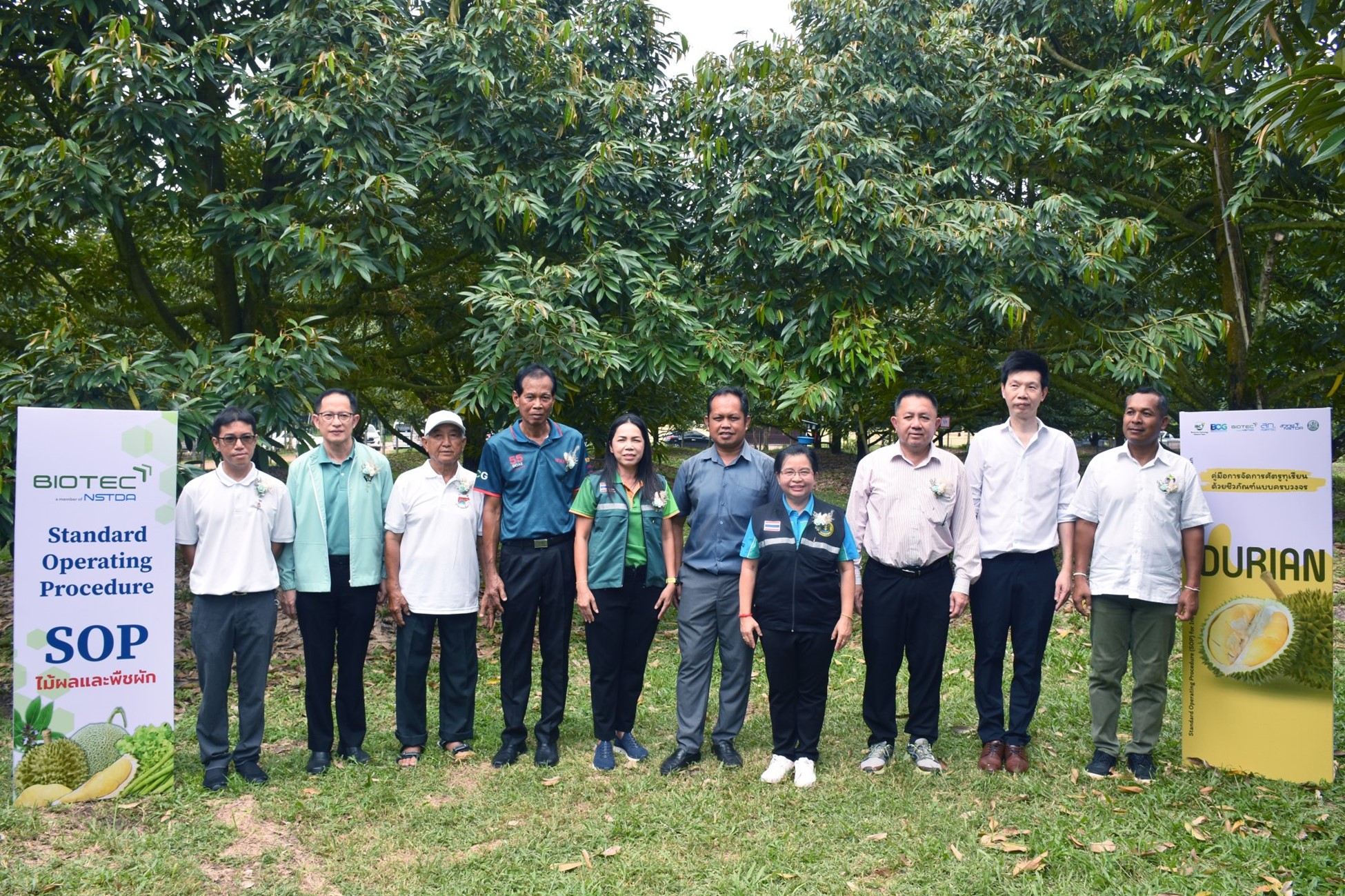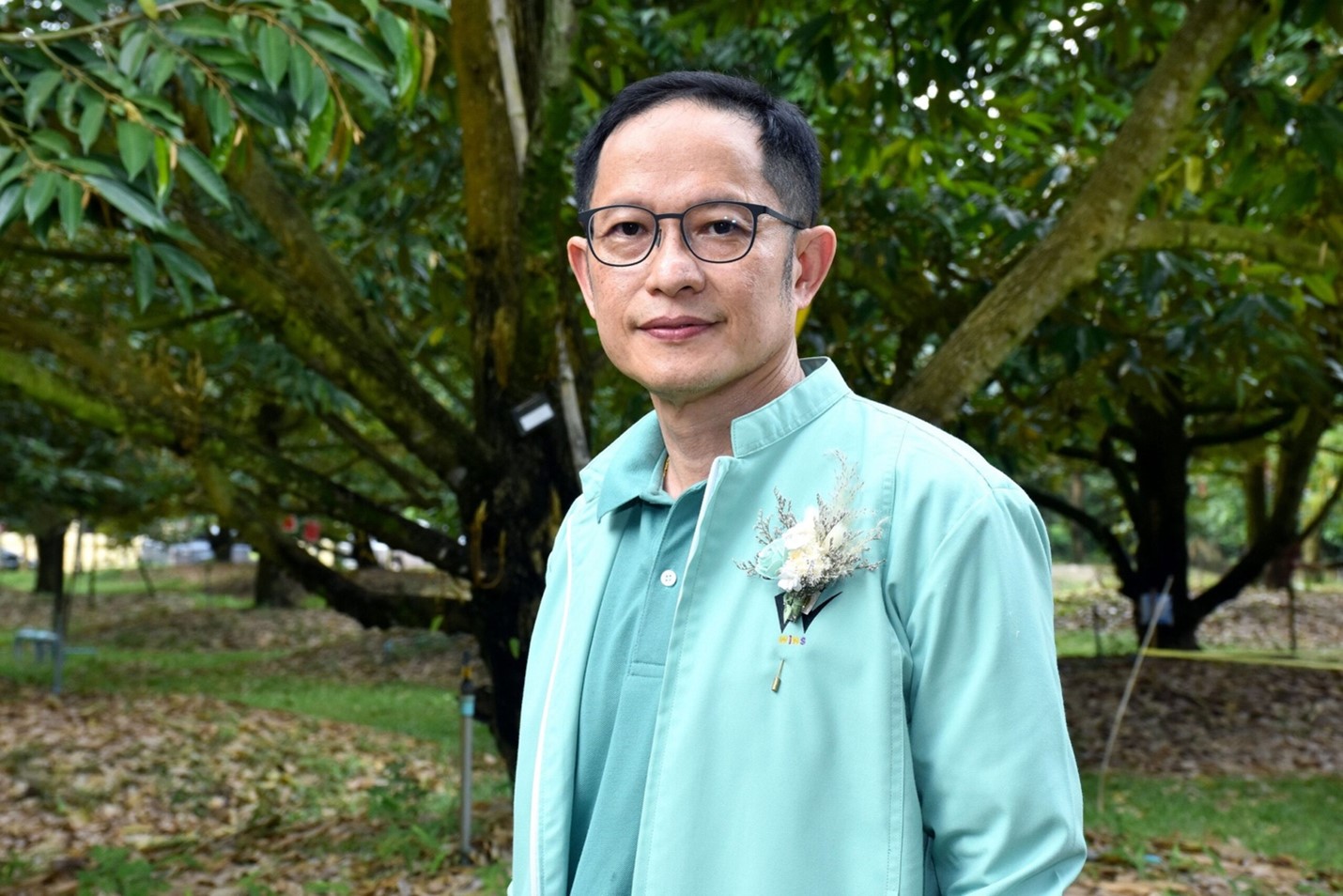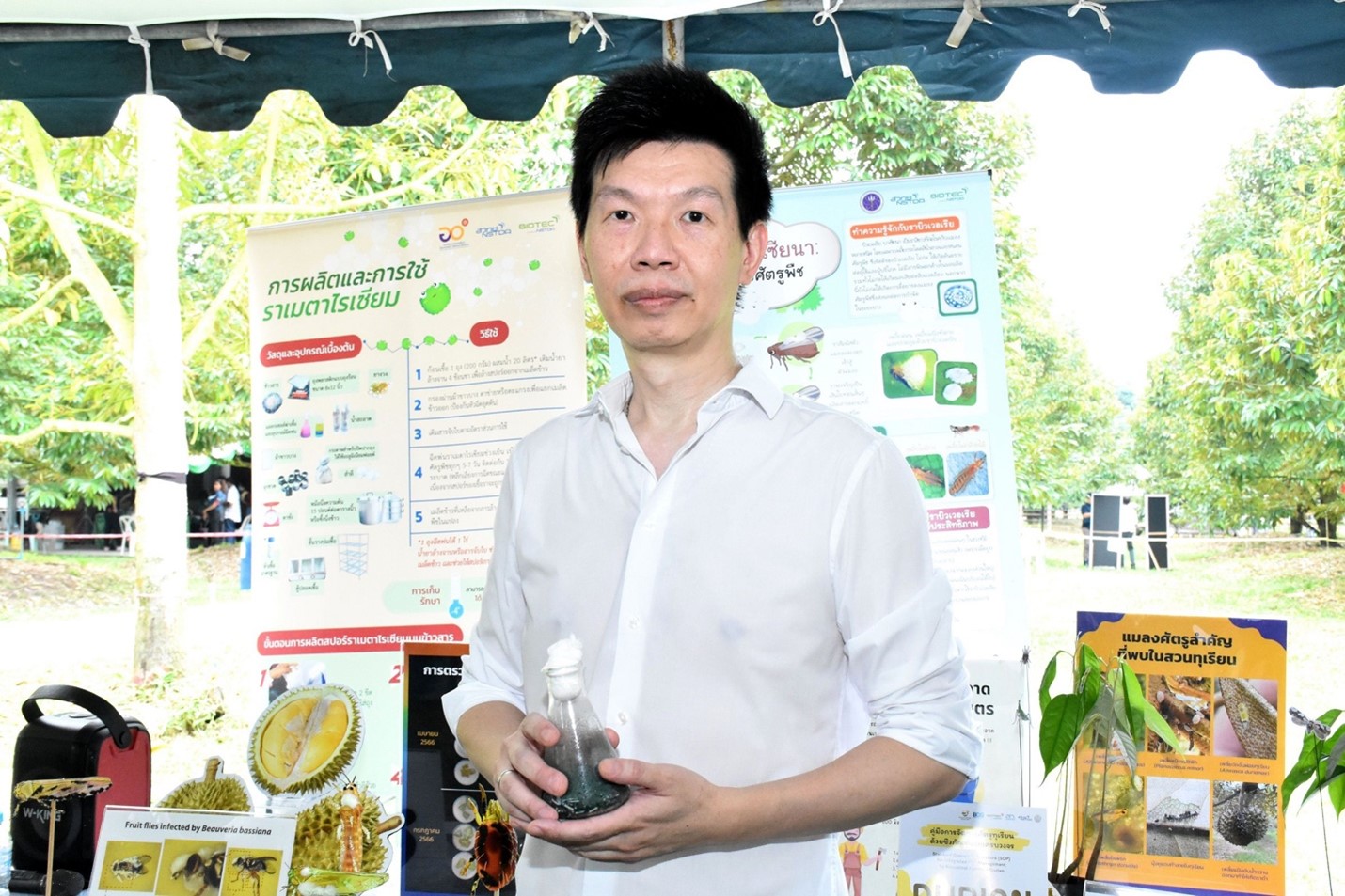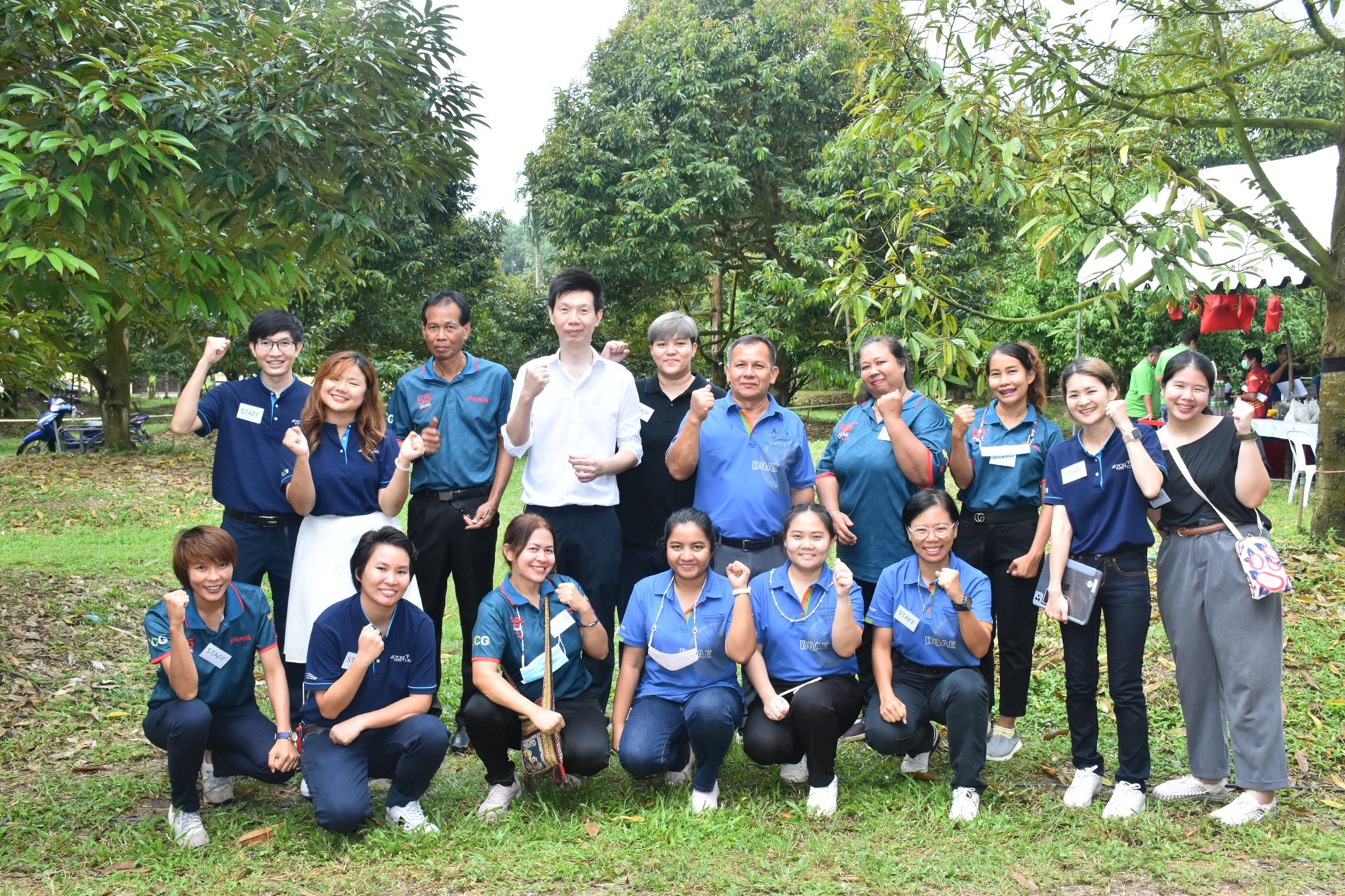Green Recovery stands among the Thai government’s post-COVID economic recovery policies. It places emphasis on creating sustainable economic growth while safeguarding the environment. To support the green recovery policy, BIOTEC-NSTDA has developed a Standard Operating Procedure (SOP) for integrated pest management in durian orchards. The SOP offers a comprehensive, effective, and eco-friendly approach to pest and disease management, assisting durian growers in caring for and protecting their trees from major pests and diseases, such as root rot and stem rot. The guidelines provide instructions on how to use biocontrol products effectively, reducing the reliance on chemical pesticides and minimizing the environmental impact while ensuring that durian quality meets export standards.

To introduce this eco-friendly SOP, BIOTEC, in collaboration with the Rayong Provincial Agriculture Office, organized a workshop for durian growers and community leaders. The workshop took place on 18 October 2023 in Ban Khai district, Rayong.

BIOTEC Executive Director Dr. Wonnop Visessanguan stated that Green Recovery is the key STI strategy supporting the agricultural sector. Thailand is blessed with the rich biodiversity, encompassing microorganisms, plants, and animals. The Biocontrol Technology Research Team at BIOTEC focuses on studying biocontrol agents for controlling agricultural pests and insect disease vectors, as well as developing biological products with high efficiency and safety.

For over two decades of research, BIOTEC team has developed an array of biocontrol products, including Beauveria bassiana, Metarhizium and Trichoderma. B. bassiana is used for controlling brown planthoppers, thrips, aphids, leafhoppers, durian psyllid and whiteflies. Metarhizium fungi are effective against spider mites, and Trichoderma can control a wide range of fungal pathogens, including Phytophthora which causes root rot and stem rot in durian trees. To support microbial utilization research, BIOTEC established Thailand Bioresource Research Center (TBRC), which ranks among the top culture collections in Asia, focusing on preserving, providing and facilitating the exchange of biological information and resources.

Dr. Alongkorn Amnuaykanjanasin, Head of BIOTEC Biological Control Technology Research Team, explained that that the research team has conducted fieldwork in Rayong, collecting information on diseases and pests prevalent in this area, and testing the performance of their biocontrol products in durian orchards. The field studies resulted in the SOP, serving as a comprehensive guide for integrated pest management in durian orchards. This approach benefits the health of growers and consumers while also protecting the environment and water sources, which are crucial for other industries like aquaculture and tourism.

Field trials in Rayong, conducted since February this year, have shown that Trichoderma is as effective as, and in some cases better than, chemical pesticides in controlling Phytophthora, the causative agent of root rot and stem rot. Furthermore, the use of biocontrol has led to an increase in beneficial insects, indicating its role in maintaining ecosystem balance. In term of crop production and fruit quality, the studies found that the use of biocontrol did not affect the taste and appearance of durian fruit, with durian production remaining similar to the times when chemicals were used, averaging 43-57 fruits per tree.

In addition to durian, the research team has tested the performance of their biocontrol agents in various crops across different locations in the country, including holy basil in Nakhon Phanom, orchids in central Thailand, yardlong bean and chili in Ratchaburi, melons in Phra Nakhon Si Ayutthaya, and mangosteen in Chanthaburi. Their studies have shown that biocontrol products are as effective in controlling pests as chemical pesticides.
“We are developing a one-stop-service system to provide biocontrol knowledge to growers, researchers, and manufacturers, guiding farmers in selecting biocontrol products suitable for their crops,” Dr. Alongkorn added. This system is expected to become operational next year, promoting the adoption of biocontrol and contributing to sustainable agriculture.
